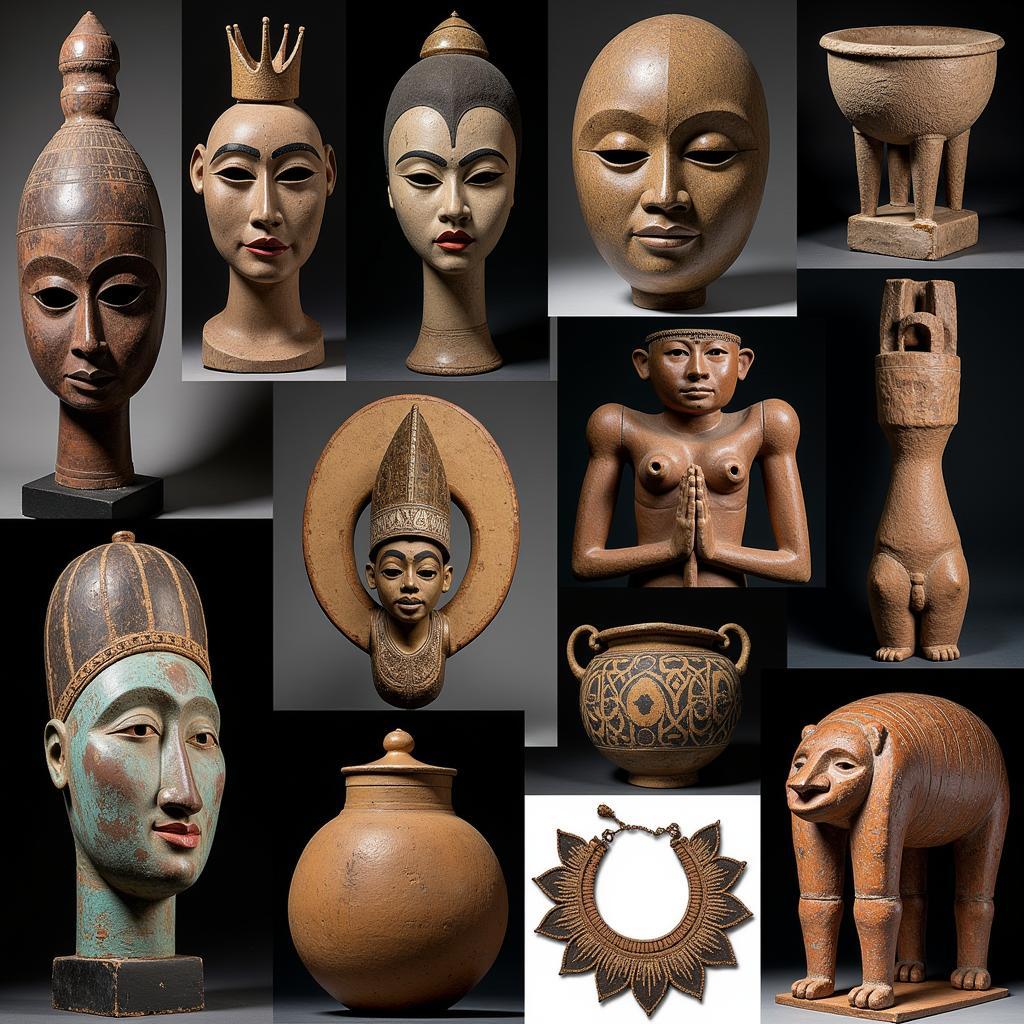Exploring the Majesty of African Kingdoms
African Kingdoms have captivated the imagination for centuries, their rich history and diverse cultures leaving an indelible mark on the world. From the ancient empires of Egypt and Kush to the powerful kingdoms of West Africa, the continent is teeming with stories of innovation, trade, and complex social structures. This exploration delves into the fascinating world of these African kingdoms, revealing their unique characteristics and enduring legacies.
The Rise and Fall of Powerful Empires: A Look at African Kingdoms
African kingdoms were not monolithic entities. They varied greatly in size, structure, and influence. Some, like the Kingdom of Aksum, flourished through maritime trade, connecting Africa to the vast networks of the Indian Ocean. Others, like the kingdoms of Ghana, Mali, and Songhai, controlled vital trade routes across the Sahara Desert, accumulating immense wealth through the exchange of gold, salt, and other valuable commodities. These kingdoms developed sophisticated systems of governance, art, and architecture, leaving behind impressive monuments and artifacts that testify to their ingenuity and prosperity.
The influence of these kingdoms extended far beyond their borders. They played a crucial role in shaping the cultural landscape of Africa and beyond, contributing to the development of art, music, literature, and religious practices. For example, the intricate weaving traditions of many West African kingdoms are still practiced today, reflecting the rich artistic heritage of these powerful states. You can learn more about these traditions through resources like african kingdoms cloth weaving.
What were the major trade routes used by African Kingdoms?
Major trade routes included trans-Saharan routes connecting West Africa to North Africa and the Middle East, and Indian Ocean routes connecting East African kingdoms to the Arabian Peninsula, India, and beyond.
The rise and fall of African kingdoms were often intertwined with the complex interplay of internal and external factors. Political instability, succession disputes, and environmental changes often contributed to the decline of these powerful states. However, their legacy continues to inspire and inform our understanding of African history and culture.
Unveiling the Cultural Richness of African Kingdoms
Beyond their political and economic power, African kingdoms were centers of cultural innovation. They developed unique artistic styles, musical traditions, and oral storytelling practices that have been passed down through generations. From the majestic pyramids of Egypt to the impressive earth architecture of the Great Zimbabwe, these kingdoms left behind a rich material culture that continues to fascinate and inspire. One can also find more information on the unique clothing styles from these regions via african kingdoms clothes.
How did art and architecture reflect the power and influence of African kingdoms?
Art and architecture served as powerful symbols of royal authority and cultural identity. Grand palaces, elaborate tombs, and intricate sculptures showcased the wealth and sophistication of these kingdoms.
“The art and architecture of African kingdoms were not merely decorative,” explains Dr. Anika Nkosi, a renowned historian of African art. “They were integral to the social and political fabric of these societies, reflecting their values, beliefs, and aspirations.” These artistic expressions served to reinforce the power of the ruling elite and to communicate important messages to the wider community.
What role did oral traditions play in preserving the history of African Kingdoms?
Oral traditions, including storytelling, poetry, and song, played a vital role in transmitting knowledge, history, and cultural values across generations. These traditions served as a living archive of the kingdoms’ past.
The Kingdom of Benin, located in present-day Nigeria, was renowned for its exquisite bronze sculptures, which depicted the rulers and celebrated the kingdom’s history and achievements. These bronze castings, along with other artistic traditions, provide valuable insights into the complex social and political structures of these ancient kingdoms. Another helpful resource for understanding the geographic distribution of these kingdoms is african kingdoms map.
Conclusion: The Enduring Legacy of African Kingdoms
African kingdoms represent a vibrant tapestry of history, culture, and innovation. From their powerful empires to their rich artistic traditions, they have left an indelible mark on the world. By exploring the fascinating stories of these kingdoms, we gain a deeper understanding of the complexity and diversity of African history and its enduring legacy.  Artifacts from African Kingdoms Further understanding can also be gained from less conventional sources, such as those detailing the interaction of African kingdoms within different geographical contexts, like african kingdoms in deccan. Continuing to study and appreciate these African kingdoms is vital to appreciating the full richness of human history.
Artifacts from African Kingdoms Further understanding can also be gained from less conventional sources, such as those detailing the interaction of African kingdoms within different geographical contexts, like african kingdoms in deccan. Continuing to study and appreciate these African kingdoms is vital to appreciating the full richness of human history.
When you need assistance, please contact us via Phone: +255768904061, Email: kaka.mag@gmail.com, or visit us at Mbarali DC Mawindi, Kangaga, Tanzania. Our customer service team is available 24/7.
